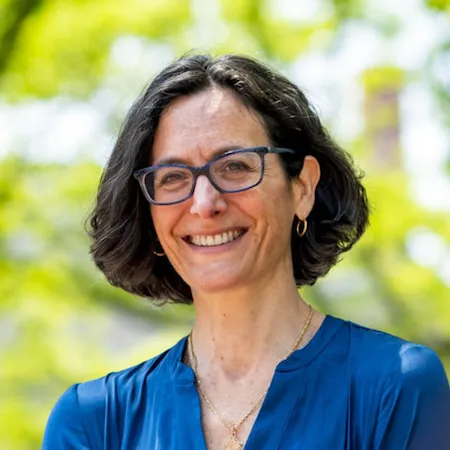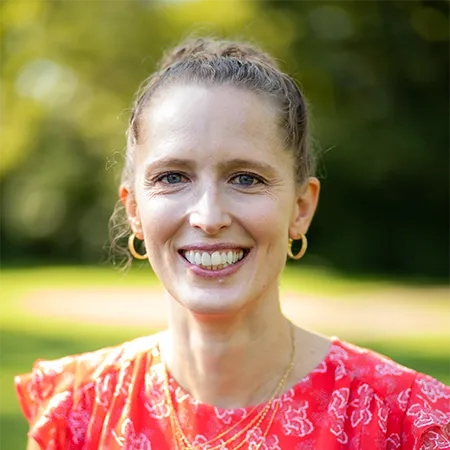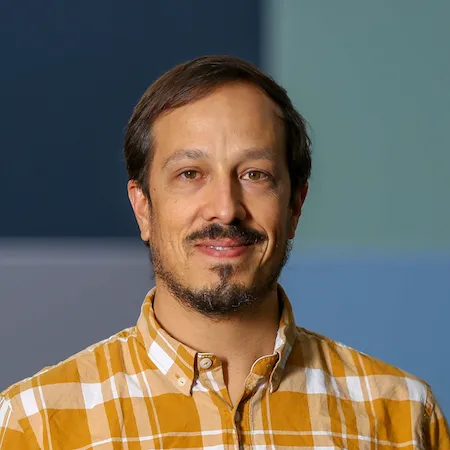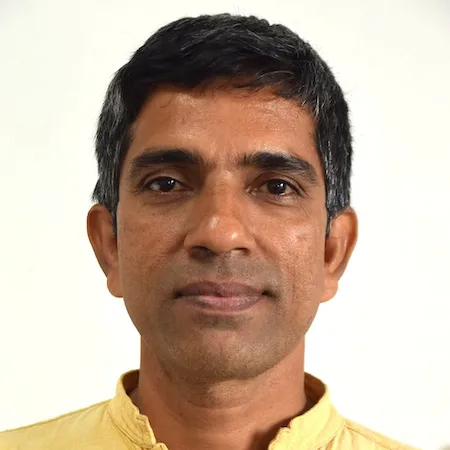Expanding the development and use of socio-environmental system (SES) models is critical to solving urgent problems situated at the human-nature interface. Substantial progress is being made, but modeling challenges associated with a range of diverse issues remain. This is the sixth in a series of webcasts based on the 2020 article “Eight grand challenges in socio-environmental systems modelling” by Sondoss Elsawah and colleagues.
This webcast and panel discussion event will focus on the critical challenge of working with diverse stakeholders and scholars to co-develop models to address socio-environmental problems. Participatory modeling provides a powerful collaborative process for developing and testing solutions. The webcast will present the state of the art in participatory modeling, focusing on the fundamental challenges and promising research directions for meeting those obstacles. This event is intended for practitioners and scholars who commission, sponsor, or use SES models.
It will begin with a pre-recorded presentation by Dr Moira Zellner, followed by short talks from each panelist based on their experiences with participatory modeling; then, an open discussion will follow. Viewers may post questions and comments.
Time:
Mon. 26 Sept. 2022, 15:00 –16:30 (EDT UTC -4)
Mon. 26 Sept. 2022, 21:00 – 22:30 (CEST UTC +2)
Tues. 27 Sept. 2022, 05:00 – 06:30 (AEST UTC +10)
| Welcome | Margaret Palmer, Director, National Socio-Environmental Synthesis Center, USA |
| Introduction | Sondoss Elsawah, Associate Professor, University of New South Wales, Canberra, Australia |
| Presentation “Participatory Modeling to Address Socio-Environmental Problems” (20 mins.) |
Moira Zellner, Professor of Public Policy and Urban Affairs and Director of Participatory Modeling and Data Science, Northeastern University |
| Panel Session (Responses 7 mins. per panelist) |
Laura Schmitt Olabisi, Professor, Michigan State University, USA Juan Castilla-Rho, Senior Lecturer, Canberra University, Australia Nagesh Kolagani, Professor, Centurion University of Technology and Management |
| Q&A (15 mins.) | Presenters and panelists respond to questions from the participants. |
| Open Discussion (10 mins.) |
Presenters

Moira Zellner
Dr. Moira Zellner is Professor of Public Policy and Urban Affairs; Director of Participatory Modeling and Data Science; and Co-Director of NULab for Texts, Maps, and Networks at Northeastern University.
Moira’s academic background lies at the intersection of Urban and Regional Planning, Environmental Science, and Complexity. She has served as Principal Investigator and Co-Investigator in interdisciplinary projects examining how specific policy, technological and behavioral factors influence the emergence and impacts of a range of complex socio-ecological systems problems, where interaction...

Moira Zellner
Dr. Moira Zellner is Professor of Public Policy and Urban Affairs; Director of Participatory Modeling and Data Science; and Co-Director of NULab for Texts, Maps, and Networks at Northeastern University.
Moira’s academic background lies at the intersection of Urban and Regional Planning, Environmental Science, and Complexity. She has served as Principal Investigator and Co-Investigator in interdisciplinary projects examining how specific policy, technological and behavioral factors influence the emergence and impacts of a range of complex socio-ecological systems problems, where interaction effects make responsibilities, burdens, and future pathways unclear. Her research also examines how participatory complex systems modeling with stakeholders and decision makers can support collaborative policy exploration, social learning, and system-wide transformation. Moira has taught a variety of workshops on complexity-based modeling of socio-ecological systems, for training of both scientists and decision makers in the United States and abroad. She has served the academic community spanning across the social and natural sciences, as reviewer of journals and grants and as a member of various scientific organizations. She is dedicated to serving the public through her engaged research and activism.
Before coming to Northeastern, Moira was an Associate Professor in the Department of Urban Planning and Policy and the Institute for Environmental Science and Policy at University of Illinois at Chicago ((UIC). She also headed the Urban Data Visualization Lab at UIC. Prior to her academic career, Moira worked as an environmental consultant for local and international environmental engineering firms and for the undersecretary of Environment in the City of Buenos Aires, Argentina.

Laura Schmitt Olabisi
Dr. Laura Schmitt Olabisi is a Professor in the Department of Community Sustainability and the Environmental Science and Policy Program at Michigan State University. She is an ecologist and a participatory modeler, working directly with communities on the ground creating change in complex systems. Laura’s published research includes several articles and a co-edited book on the practice of participatory modeling, and community-engaged work on food systems and climate-resilient agricultural practices. She holds an Sc.B. from Brown University, and a doctoral degree from the State University of...

Laura Schmitt Olabisi
Dr. Laura Schmitt Olabisi is a Professor in the Department of Community Sustainability and the Environmental Science and Policy Program at Michigan State University. She is an ecologist and a participatory modeler, working directly with communities on the ground creating change in complex systems. Laura’s published research includes several articles and a co-edited book on the practice of participatory modeling, and community-engaged work on food systems and climate-resilient agricultural practices. She holds an Sc.B. from Brown University, and a doctoral degree from the State University of New York College of Environmental Science and Forestry. She was a AAAS Leshner Leadership Fellow for Public Engagement with Science in 2018-2019.

Juan Castilla-Rho
Dr. Juan Castilla-Rho is a complex systems modeler working at the interface of stakeholder engagement and computational social science. He integrates expertise in behavioral modeling and decision science to create participatory processes and agent-based simulation models that improve the understanding and management of complexity in socio-technical and socio-environmental (S-E) systems. Ongoing projects focus on developing management flight simulators to enhance the ability of government agencies to identify robust solutions to vexing socio-hydrological dilemmas. Juan's innovative co-design...

Juan Castilla-Rho
Dr. Juan Castilla-Rho is a complex systems modeler working at the interface of stakeholder engagement and computational social science. He integrates expertise in behavioral modeling and decision science to create participatory processes and agent-based simulation models that improve the understanding and management of complexity in socio-technical and socio-environmental (S-E) systems. Ongoing projects focus on developing management flight simulators to enhance the ability of government agencies to identify robust solutions to vexing socio-hydrological dilemmas. Juan's innovative co-design and modeling approaches are also being applied beyond the (S-E) systems domain to explore child poverty and social assistance pathways in Finland. Formerly a research scientist and groundwater modeler at the CSIRO, Juan spent the early part of his career working in the Atacama Desert for the Chilean Water Authority water utilities and also as water engineering consultant, dealing with complex groundwater issues in one of the driest regions in the world. His work has been published extensively (including the cover of a Nature journal), presented at prestigious international venues, earned early career scientist (CSIRO) and leadership (AusAID) awards, and so far attracted over 1.5M in project funding.

Nagesh Kolagani
Dr. Nagesh Kolagani is a software engineer by training, interested in simplifying and customizing open-source mobile and web GIS software, for use by farmers, school children, and NGO field staff in improving natural resource management in their villages. He studied engineering at Indian Institute Of Technology Madras (India) and in the United States. Subsequently, he worked for a few years in the United States as a software engineer, developing Windows-based consumer software products. He then returned to India and settled down in a village for about 14 years, practicing and promoting organic...

Nagesh Kolagani
Dr. Nagesh Kolagani is a software engineer by training, interested in simplifying and customizing open-source mobile and web GIS software, for use by farmers, school children, and NGO field staff in improving natural resource management in their villages. He studied engineering at Indian Institute Of Technology Madras (India) and in the United States. Subsequently, he worked for a few years in the United States as a software engineer, developing Windows-based consumer software products. He then returned to India and settled down in a village for about 14 years, practicing and promoting organic farming, rainwater harvesting, and social forestry using participatory GIS. He subsequently completed his PhD on participatory GIS and modeling and is currently a Professor of Computer Science and Engineering at a rural agricultural university in Odisha, India, promoting participatory water accounting and extensive use of free GIS maps, satellite, and drone imagery in village-development activities.